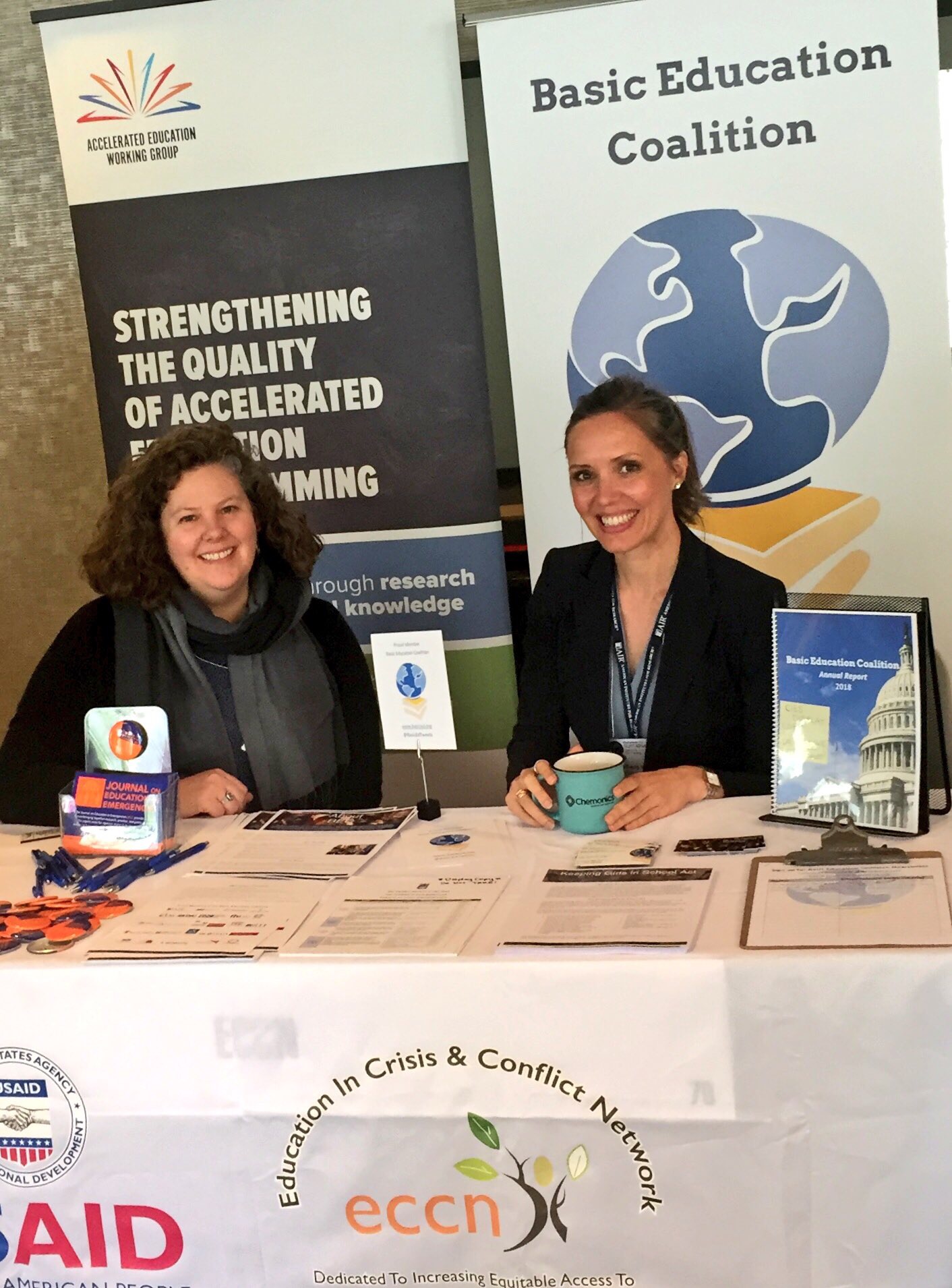Above: CIES Trivia Night reception co-sponsored by BEC
By popular demand, BEC co-hosted the second annual CIES Trivia Night with ECCN, Education Equity Research Initiative, FHI360, INEE, JEiE, and 2 SIGs. Trivia questions focused on education in conflict and crisis settings.175 guests attended the reception to meet colleagues, eminent leaders and scholars in the Education in Conflict and Crisis field. Anjuli Shivshanker (USAID) and Cornelia Janke (ECCN) gave opening remarks.
BEC's Gender and Girls' Education working group organized a CIES panel: "Engaging governments to ensure sustainability; three case studies of civil society efforts to promote gender and girls’ education." Representatives from Room to Read, World Learning, The Brookings Institute and the Basic Education Coalition presented evidence and strategies that are working to advance progressive gender and girls' education around the world. More from the BEC Gender and Girls' Education working group.
CIES was big on Twitter this year. Extend dialogue on #Ed4Sustainability from #CIES2019 and consider the #EdBeyondHuman theme of #CIES2020 in Miami, Florida. Read about next year's theme at http://cies2020.org.
Below: BEC members presenting research, at the BEC Booth in the exhibit hall, and mingling at receptions













